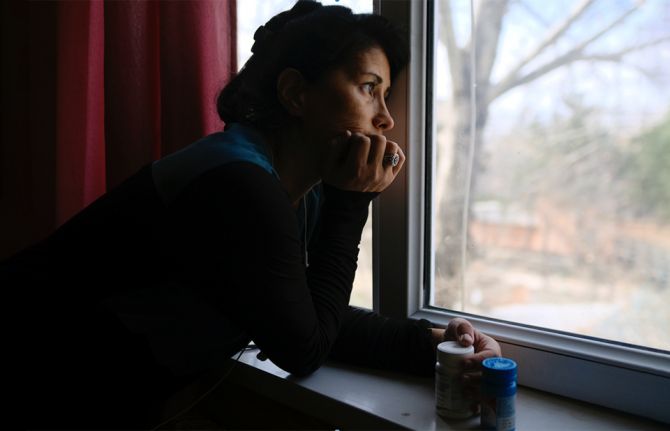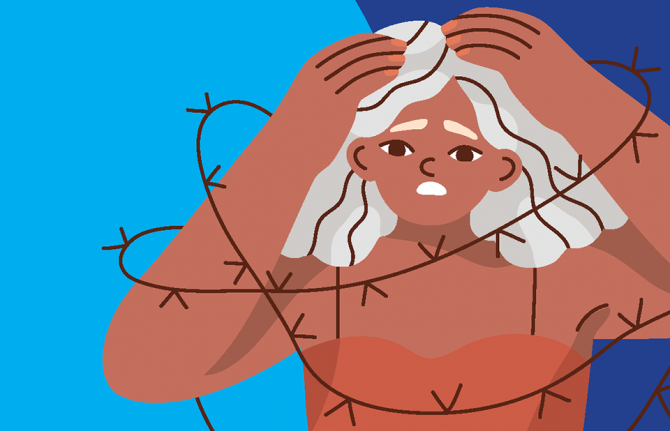
Feature Story
Human rights and universal access
11 декабря 2007
11 декабря 2007 11 декабря 2007Human rights and its links to reaching the goal of universal access to HIV prevention, treatment, care and support was central to the discussions of the eighth meeting of the UNAIDS Reference Group on HIV and Human Rights, an independent advisory body to UNAIDS, that took place on 3-5 December 2007 in Geneva.
“The most critical issues in the HIV response are human rights issues, and UNAIDS [needs to] frontline these to push the HIV response towards universal access to HIV prevention, treatment, care and support,” said Reference Group Chair Mark Heywood when he summarized the Group’s conclusions to UNAIDS Deputy Executive Director (Programme) Michel Sidibe.
The Group – which includes HIV activists, lawyers, a High Court judge, people living with HIV, people working with sex workers and drug users, academics and the UN Special Rapporteur on the Right to Health – addressed a range of issues, including accountability for universal access commitments, human rights in the context of sex work and drug use, promotion of gender equality in national HIV responses.
Recent trends of criminalizing HIV transmission were also discussed. The Reference Group expressed its concern about the tendency of parliaments to criminalize HIV transmission and highlighted an increasing conflict between the push to help people get tested for HIV in order to get HIV treatment and the move to prosecute people who transmit HIV. It asked that UNAIDS empower its staff to work against this trend and urge governments to put in place the kind of laws that will really help stop the transmission of HIV: laws to protect the equality of women and to protect them against violence, laws to protect people living with HIV against discrimination, and laws to ensure sufficient programmes for HIV prevention for all populations groups in need of them.
The Reference Group also expressed concerns about reports of mandatory HIV testing. “We fully support the scale up of testing and counselling services as a human rights imperative, but providers must do so in a way that is based on dignity,” Heywood said in his summary report to UNAIDS. The Reference Group called for greater monitoring of this issue, as well as advocacy and technical assistance to ensure that mandatory testing practices are put to an end.
UNAIDS Deputy Executive Director, Michel Sidibe underlined the important role of UNAIDS staff in country – across the co-sponsored, joint UN programme – as human rights advocates. “AIDS will remain if we don’t deal with the human rights issues,” he said.
“All of our staff should be human rights oriented. We know that human rights must be at the basis of programmes that address the realities of those most vulnerable and those most affected by HIV,” he added.
He noted that much more work needs to be done to make HIV programmes respond to the local dynamics of the epidemic.
“Priority setting in national responses has generally not addressed the major challenges – the major vulnerabilities, issues of stigma, discrimination, gender inequality, and other human rights violations. We need better situation analysis, better understanding of the contextual factors, and we have to act on that information,” Sidibe said.
Audio:
Listen to Mark Heywood, Head of AIDS Law Project and National Secretary of Treatment Action Campaign (TAC)
Listen to Sofia Gruskin, Director of the International Health and Human Rights Program, Harvard School of Public Health
Links:
Read more on the UNAIDS Reference Group on HIV and Human Rights
Read more on Human Rights
Read UNAIDS Executive Director's statement on Human Rights Day 2007
Related
 Tajikistan takes a positive step towards decriminalization of HIV exposure and transmission
Tajikistan takes a positive step towards decriminalization of HIV exposure and transmission

30 января 2024 года.
 A rainbow of hope for LGBTQI+ people in rural Japan
A rainbow of hope for LGBTQI+ people in rural Japan

17 мая 2023 года.

